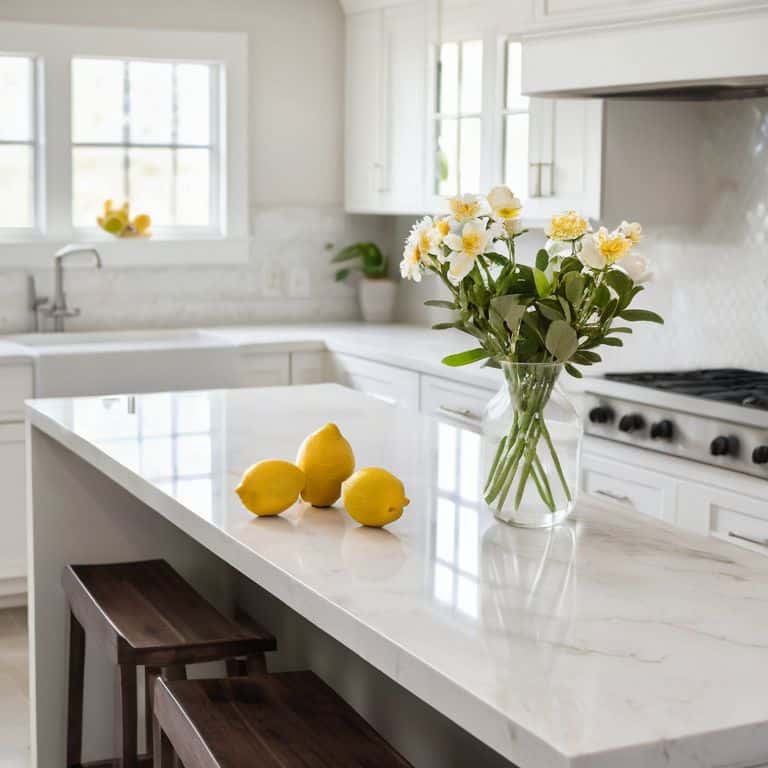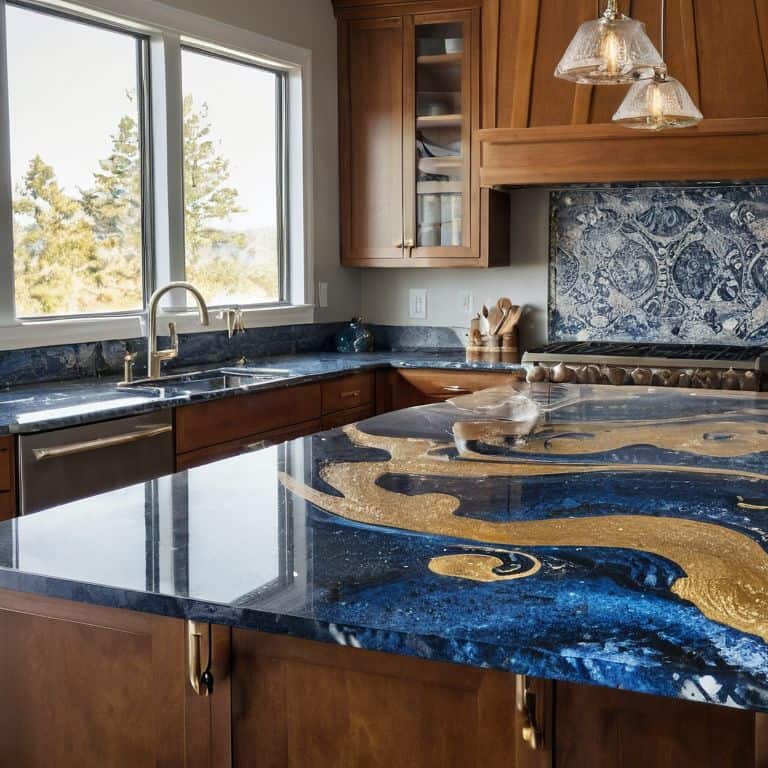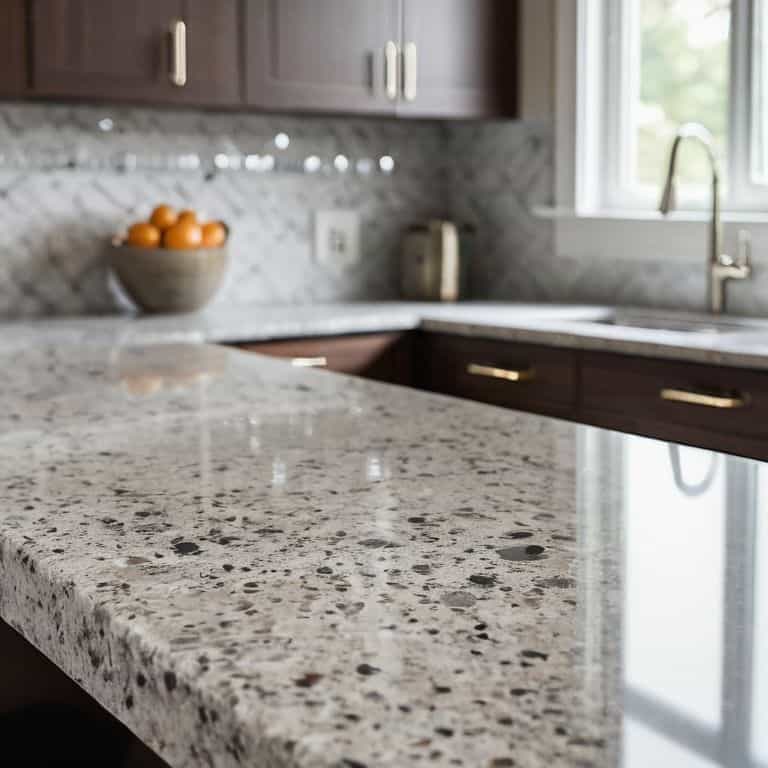I still remember the countless hours I spent in my own kitchen, deliberating over the perfect countertops. The age-old debate: quartz vs granite countertops. It’s a decision that can make or break the aesthetic and functionality of your cooking space. I’ve seen friends and clients struggle with this very choice, and I’ve been there myself. The options can be overwhelming, and the stakes are high – after all, your countertops will be with you for years to come.
As someone who’s passionate about creating kitchens that inspire better cooking, I want to cut through the hype and give you the lowdown on _the real differences_ between quartz and granite countertops. In this article, I’ll share my honest, experience-based advice on how to choose the right material for your dream kitchen. I’ll dive into the pros and cons of each, and provide you with practical tips on how to make a decision that fits your lifestyle, budget, and personal style. My goal is to empower you with the knowledge you need to create a kitchen that’s not only beautiful, but also functional and efficient – a true haven for home cooks.
Table of Contents
Quartz Countertops

Quartz countertops are a type of engineered stone made from crushed quartz minerals mixed with resin and pigment, offering a durable and low-maintenance surface. The core mechanism of quartz countertops lies in their manufacturing process, where the mixture is compressed and baked to create a solid, non-porous slab, making them highly resistant to scratches and stains, with their main selling point being their ease of upkeep. This is especially important for homeowners who want to enjoy the look of natural stone without the hassle of frequent sealing.
For me, the appeal of quartz countertops lies in their ability to bring a sense of serenity to the kitchen. Imagine being able to cook and entertain without worrying about spills or scratches ruining your countertops. Practical elegance is what quartz countertops embody, allowing homeowners to focus on what matters most – sharing meals and making memories with loved ones. By choosing quartz, you’re not only investing in a beautiful surface, but also in a stress-free cooking experience that lets you enjoy the simple pleasures of kitchen life.
Granite Countertops

Granite countertops are a type of natural stone surface made from granite rock, prized for their unique, intricately patterned beauty and exceptional durability. The main selling point of granite countertops is their ability to add a touch of luxury and sophistication to any kitchen, thanks to their distinctive veining and rich colors. Granite is also highly resistant to heat and scratches, making it an excellent choice for busy home cooks who value both form and function.
As someone who’s passionate about kitchen design, I believe that granite countertops have the power to elevate the cooking experience. There’s something special about cooking on a surface that’s been crafted by nature, with all its unique imperfections and characteristics. For those who appreciate the warmth and character of natural materials, granite countertops offer a way to bring a sense of authenticity and personality to the kitchen, making it feel more like a welcoming hub of the home rather than just a functional space.
Quartz vs Granite Countertops: Head-to-Head Comparison
| Feature | Quartz | Granite |
|---|---|---|
| Price | $40-$100 per sqft | $30-$200 per sqft |
| Key Feature | Engineered stone, non-porous | Natural stone, porous |
| Best For | Modern kitchens, low maintenance | Traditional kitchens, unique look |
| Durability | High resistance to scratches and stains | Resistant to scratches, but prone to stains |
| Maintenance | Easy to clean, no sealing required | Periodic sealing required, challenging to clean |
| Heat Resistance | Good heat resistance, but not perfect | Excellent heat resistance |
| Customization | Wide range of colors and patterns | Limited to natural patterns and colors |
Quartz vs Granite Countertops

When it comes to quartz vs granite countertops, the choice between these two materials can greatly impact the overall aesthetic and functionality of your kitchen. The criterion of durability is crucial in this debate, as it directly affects the longevity and maintenance requirements of your countertops.
In a head-to-head analysis, quartz and granite countertops have distinct characteristics when it comes to durability. Quartz countertops are known for their resistance to scratches and stains, making them a great option for busy kitchens. On the other hand, granite countertops are more porous, requiring periodic sealing to maintain their appearance and durability.
In terms of practical implications, quartz countertops are generally easier to maintain, while granite countertops require more elaborate care. Considering these factors, I would conclude that quartz countertops are the clear winner when it comes to durability. Their low-maintenance requirements make them an ideal choice for homeowners who want a beautiful and long-lasting kitchen countertop.
Key Takeaways for Your Dream Kitchen
Ultimately, the choice between quartz and granite countertops comes down to your personal style, budget, and cooking habits – consider what matters most to you and your kitchen workflow
Both quartz and granite offer unique benefits, but it’s essential to weigh their durability, maintenance requirements, and aesthetic appeal before making a decision that will impact your kitchen’s functionality and ambiance
By prioritizing your needs and understanding the strengths of each material, you can create a kitchen that not only looks stunning but also inspires you to cook with joy and ease, making the most of your quartz or granite countertops
The Heart of the Matter
The choice between quartz and granite countertops is not just about aesthetics; it’s about crafting a kitchen that harmonizes functionality, beauty, and your unique cooking rhythm – because, let’s face it, a kitchen that flows is a kitchen that inspires.
Clara Wu
The Final Verdict: Which Should You Choose?
As we’ve explored the ins and outs of quartz and granite countertops, it’s clear that both materials have their unique strengths and weaknesses. Durability and aesthetics are key considerations, with quartz offering a more uniform look and granite providing a natural, one-of-a-kind appearance. Additionally, factors like maintenance, budget, and personal style play a significant role in making a decision. By weighing these factors, you can make an informed choice that suits your kitchen needs and preferences.
Ultimately, the choice between quartz and granite countertops comes down to your individual priorities and cooking style. If you value low maintenance and a contemporary look, quartz might be the better choice. On the other hand, if you prefer a traditional, high-end feel and are willing to commit to periodic sealing, granite could be the way to go. As a designer, I recommend quartz for busy home cooks and granite for those who appreciate the unique character it brings to a kitchen.
Frequently Asked Questions
What are the key differences in maintenance and upkeep between quartz and granite countertops?
For me, the maintenance difference between quartz and granite is huge. Quartz is a breeze to clean and maintain, while granite requires periodic sealing to prevent stains. I always tell my clients, if you want a low-fuss kitchen, quartz might be the way to go, but if you’re up for a little extra TLC, granite’s unique beauty can be worth it.
Can quartz or granite countertops be repaired if they get damaged or stained?
The million-dollar question: can these beautiful countertops be saved if disaster strikes? Absolutely! Both quartz and granite can be repaired, but it’s often easier with quartz since it’s more forgiving. For granite, you may need a professional to fix stubborn stains or chips. I always recommend having a repair kit on hand, just in case.
How do the costs of quartz and granite countertops compare, and are there any budget-friendly options available?
Let’s dive into the cost comparison: quartz and granite countertops can range from $40 to $100 per square foot. However, I always tell my clients that with a little creativity, you can achieve a high-end look on a budget – consider shopping during sales or using remnants for smaller projects, like a kitchen island or peninsula.
